Event Highlights
Registration is now open! You can join us in-person or virtually
Join us in Vienna or virtually to explore practical, safe, and scalable solutions in autonomous technology. Discover cutting-edge advancements and make a real-world impact!

Motto & Storyline of 2025 Making a Real-World Impact: Safe and Secure Software-Defined Autonomy
This year, safety, security, and real-world impact take center stage. Join us in discussing and turning cutting-edge autonomous tech into practical, safe, and scalable solutions.

Top speakers A global network of industry & thought leaders
Our carefully curated speaker lineup includes C-level executives, top safety experts and senior decision-makers from the global autonomous mobility industry.

New in 2025: Disruptors' Track Present Your Startup Tech on the Main Stage
High-growth startups in L3/L4 autonomous driving safety, autonomous trucking, robotics, or regulatory solutions - this is your chance to shine! Step into the spotlight and showcase your innovation.

Join the ecosystem Working towards Global Reference Solutions
You are invited to join forces in harmonizing safety in the autonomous mobility ecosystem.
Main Event - Recap 2024
Watch videoSpeakers in 2025 Our Speakers in 2025
Meet the industry-leading speakers and moderators of 2025, and stay tuned as we unveil more inspiring voices soon.


Hudi
With over 32 years of experience in the automotive and technology industry, Ricky Hudi acts as Chairman of The Autonomous. Passionate about innovation and the development of autonomous driving technologies, Ricky is a true pioneer in the mobility sector. After holding various roles at BMW AG and AUDI AG he took over in January 2009 as EVP Development Electrical/Electronic AUDI AG. He also founded his own company “FMT – Future Mobility Technologies” and is leveraging a world-wide network of key players in the autonomous driving industry.


Sievers
Kurt Sievers has been President and CEO of NXP Semiconductors since May 2020, leading strategic initiatives like the acquisition of Marvell’s Wi-Fi Connectivity Business Unit and the merger with Freescale Semiconductor. He holds a Master of Science in Physics and Computer Science from Augsburg University, Germany. Kurt serves on several boards, including Capgemini S.E., ESIA, GSA, AENEAS, ZVEI, and OAV and has been with NXP since 1995.
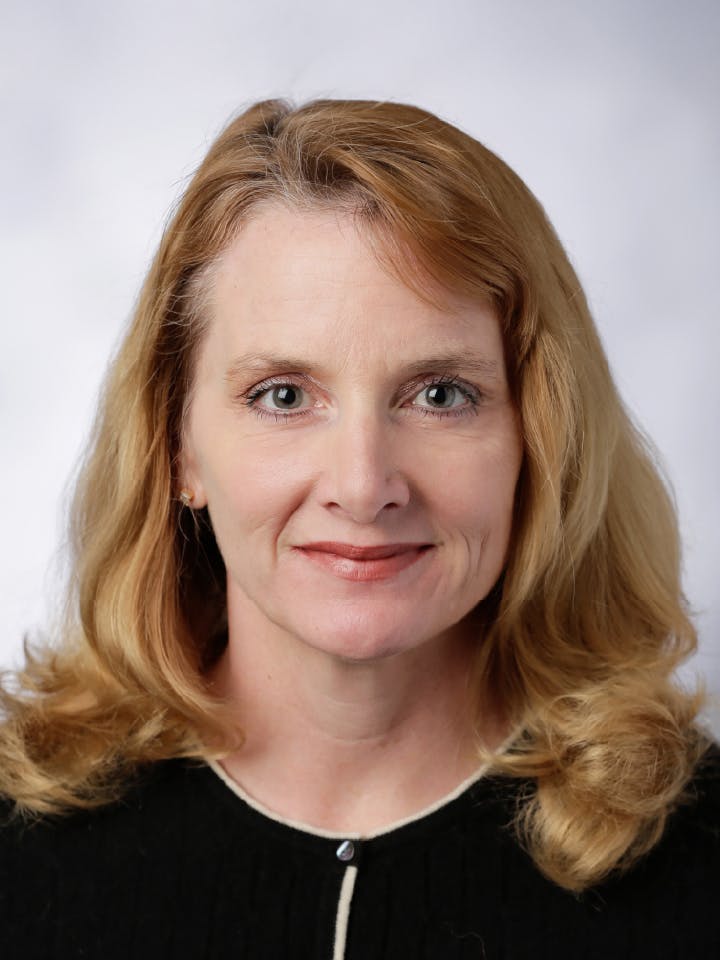

Cummings
Missy Cummings is a Professor at George Mason University's College of Engineering and Computing, directing the Mason Responsible AI program and Mason Autonomy and Robotics Center. A former naval officer and one of the U.S. Navy's first female fighter pilots, she holds a B.S in Mathematics, an M.S in Space Systems Engineering, and a Ph.D in Systems Engineering. She is a Fellow of the American Institute of Aeronautics and Astronautics and the Royal Aeronautical Society, and a Commissioner for the Global Commission on Responsible AI in the Military Domain.
Autonomous Vehicles: Are we there yet?
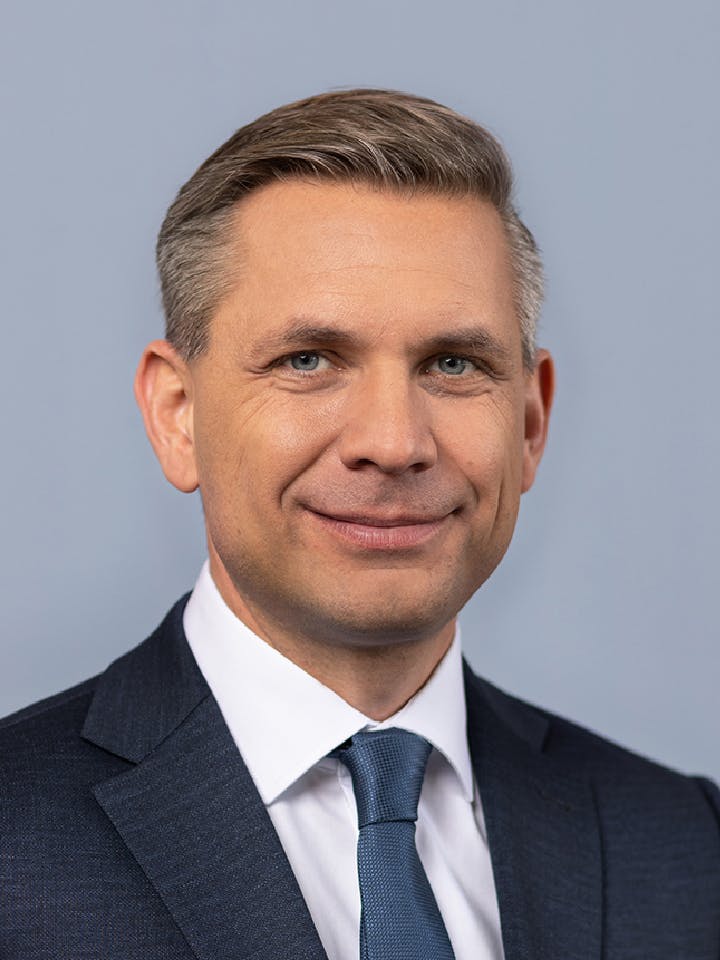

Hattmannsdorfer
Dr. Wolfgang Hattmannsdorfer (b. 1979, Linz) has been Austria’s Federal Minister for Economic Affairs, Energy and Tourism since April 2025. Previously, he served as Minister of Labour and Economic Affairs and held roles in the National Council and Upper Austrian government. A member of the ÖVP, he holds a doctorate in Social and Economic Sciences from JKU Linz and studied internationally in Taipei and Washington, D.C.
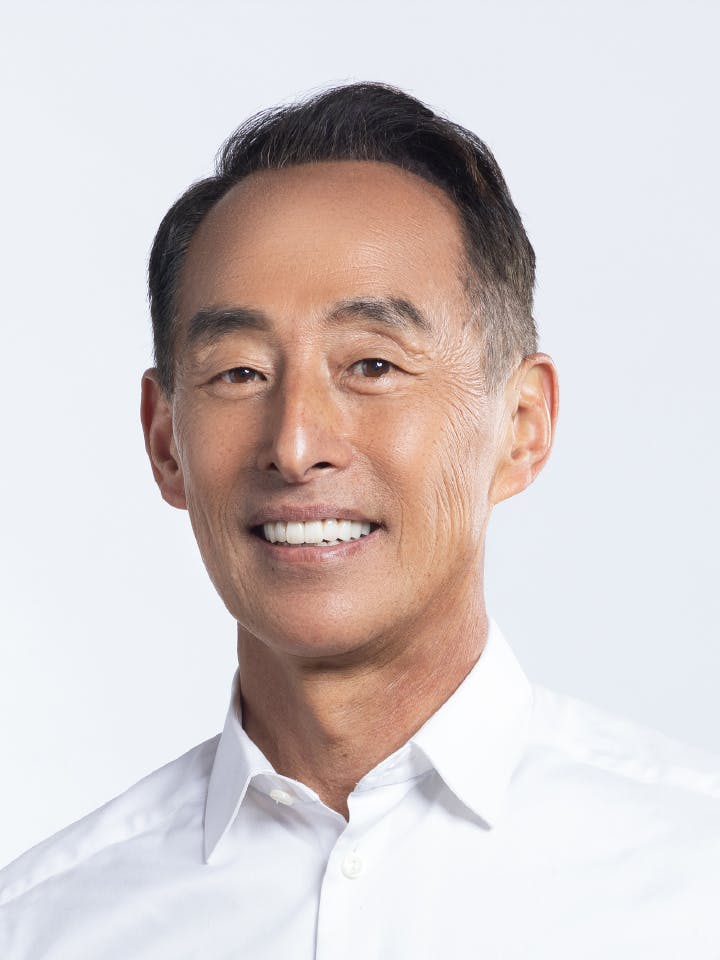

Sohn
Young Sohn is a Silicon Valley business executive and investor. He is currently a Founding Managing Partner at Walden Catalyst Ventures, an over $550M early-stage venture capital fund dedicated to deep-tech investments focused on data & AI across North America, Europe, and Israel. Previously Corporate President and Chief Strategy Officer for Samsung Electronics, as well as CEO of two Silicon Valley public companies (Inphi, Oak) and board member of Arm, Cadence, Cymer (ASML), and others, he now serves as Chairman of the Board of HARMAN International.
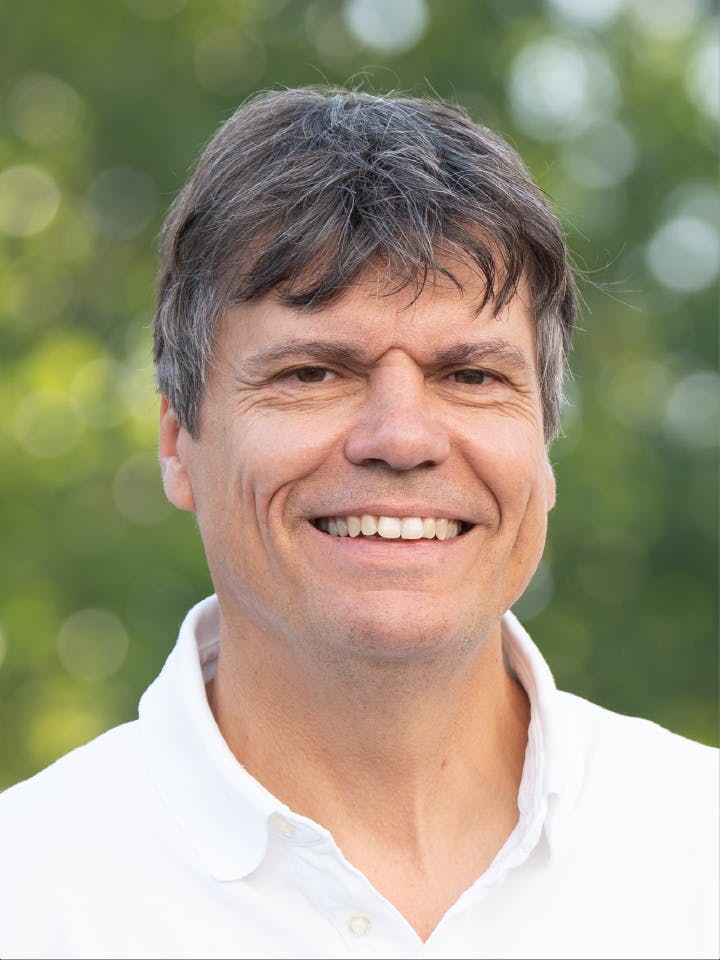

Hart
Dr. Martin Hart is responsible for developing assistance systems at Mercedes-Benz Cars, including EE chassis and brake control systems and the driving simulator. As part of the E/E product group, he oversees cross-departmental system development. Dr. Hart studied electrical engineering at the University of Karlsruhe and completed his doctorate at Daimler-Benz AG. He has held leadership roles at Mercedes-AMG GmbH and in automatic transmission development. Since 2016, he has led E/E brake control, chassis systems, and DRIVE PILOT software.


Hafkemeyer
Marcus Hafkemeyer is the CEO of CARizon, China, with nearly 30 years of executive experience in the automotive industry. He previously served as CTO of Volkswagen Group China, Vice President of BAIC Group, and Executive Strategy Advisor at Huawei Automotive. At CARIZON, Marcus leads the development of intelligent driving solutions tailored to the Chinese market, leveraging partnerships with Horizon Robotics and Volkswagen. His expertise spans product development, strategic initiatives, and automated driving technologies.


Smoly
Ronen Smoly has been the CEO of PlaxidityX (formerly Argus Cyber Security LTD.) since 2020. Prior to this, he served as VP of Sales for three years, leading market penetration and expansion. With over two decades of experience in sales management and business development across telecommunications, cybersecurity, and media, Ronen has held senior roles at Hola, Cisco, NDS (a News Corp Company), Jungo, and Cardonet. He holds a BSc in information systems, industrial engineering, and management from the Technion – Israel Institute of Technology.


Pillin
Mathias Pillin is CTO of Bosch Mobility and a Board member since 2023. He began at ETAS in 1999 as a software developer, then joined Bosch, holding roles in software, electronics, sales, and project management. In 2012, he became Head of Development and SVP for Car Multimedia. From 2016–2019, he was EVP for Drivetrain Electrification, then President of Chassis Systems Control (2020) and Cross-Domain Computing Solutions (2021–2022).
AD by a Tier 1 – High tech, truly automotive, truly global
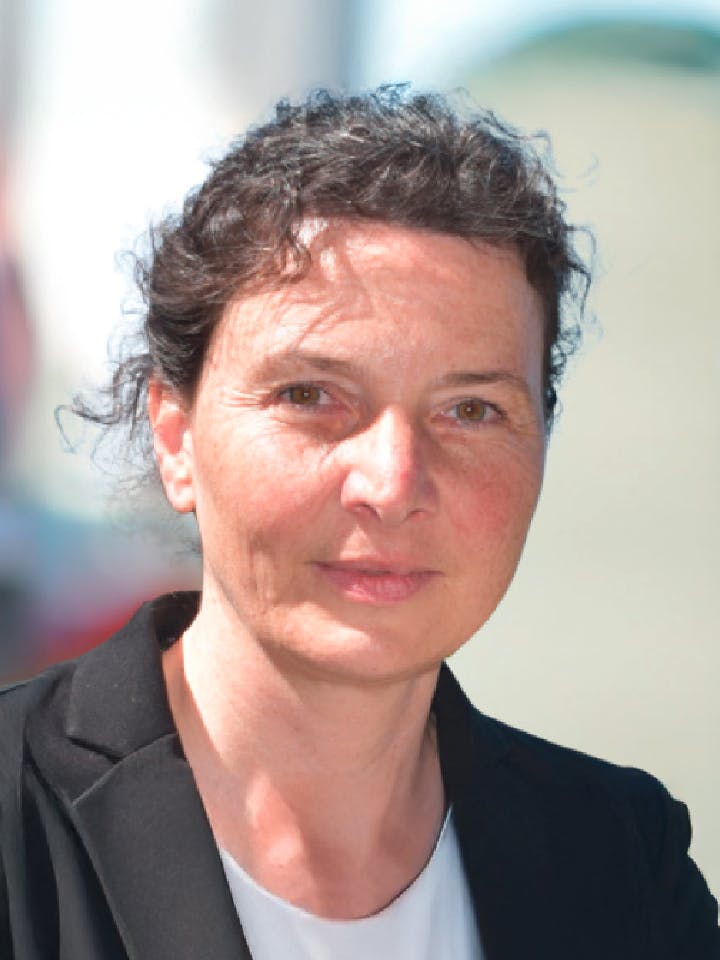

Matthes
Katrin Matthes is Lead Software Technologist at Ampere, driving cross-functional software and the company’s software-led transformation. She represents Ampere and Renault Group in the European SDV initiative Shift2SDV. Previously, she was Platform Software Lead Architect at Intel and spent 17 years at Texas Instruments in mobile telephony roles. Katrin holds a dual French-German Master’s in Electrical Engineering from KIT and INPG.
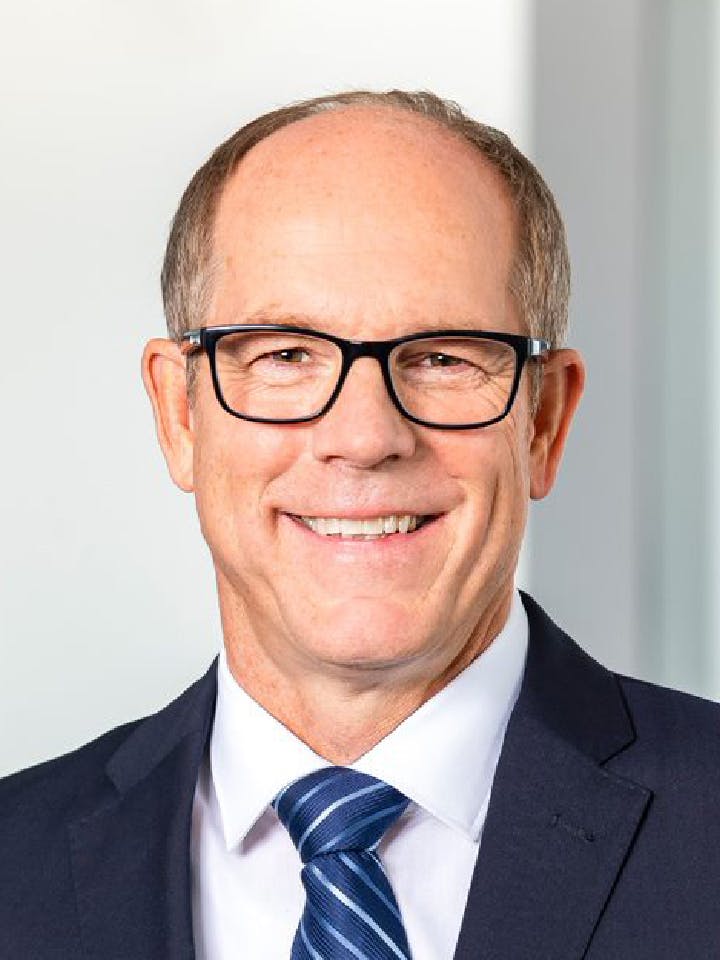

Hinrichsen
Jens Hinrichsen is the Executive Vice President and General Manager of Analog and Automotive Embedded Systems at NXP Semiconductors, overseeing the company's analog product portfolio and system offerings for the automotive market. With 25 years of experience in the semiconductor industry, Jens began his career at Philips Semiconductors in 1995 and has held various roles in Europe, Asia, and the U.S. He holds a degree in Mechanical Engineering and Business from the Technical University in Berlin and has been with NXP since 1995.
Built for Trust: Engineering Safe Intelligence at the Edge


Keilaf
Omer Keilaf is the co-founder and CEO of Innoviz Technologies, a leading supplier of LiDAR sensors and perception software for autonomous vehicles. Under his leadership, Innoviz has raised $371 million and grown to over 400 employees. In March 2024, BMW launched its Personal Pilot function using Innoviz’s LiDAR, marking one of the first series production L3 autonomous vehicles on German highways. Omer previously served in an elite technological unit of the IDF and held senior roles at Consumer Physics and STMicroelectronics.


Reger
Lars Reger is executive vice president and chief technology officer for NXP Semiconductors. He is responsible for managing new business activities, R&D in automotive, industry 4.0, the internet of things (IoT), mobile and connectivity & infrastructure. Prior to joining NXP as CTO of the automotive division in 2008, he was responsible for business development and product management within Continental’s connectivity business unit. In December 2018, Lars was appointed NXP’s CTO and has since then been responsible for the technology portfolio of NXP.


Wolfers
Benedikt Wolfers is a founding partner of POSSER SPIETH WOLFERS & PARTNERS (pswp), a law firm specialized in national and international regulation for different industries, notably automotive, energy, finance and infrastructure. He has been engaged for many years in the design and approval process for SAE L3 and 4 systems and the development of homologation and road traffic law. He is advising OEMs, semiconductors, tier 1 companies in Europe and the US and has long-standing experience with national and international regulatory bodies and governments.
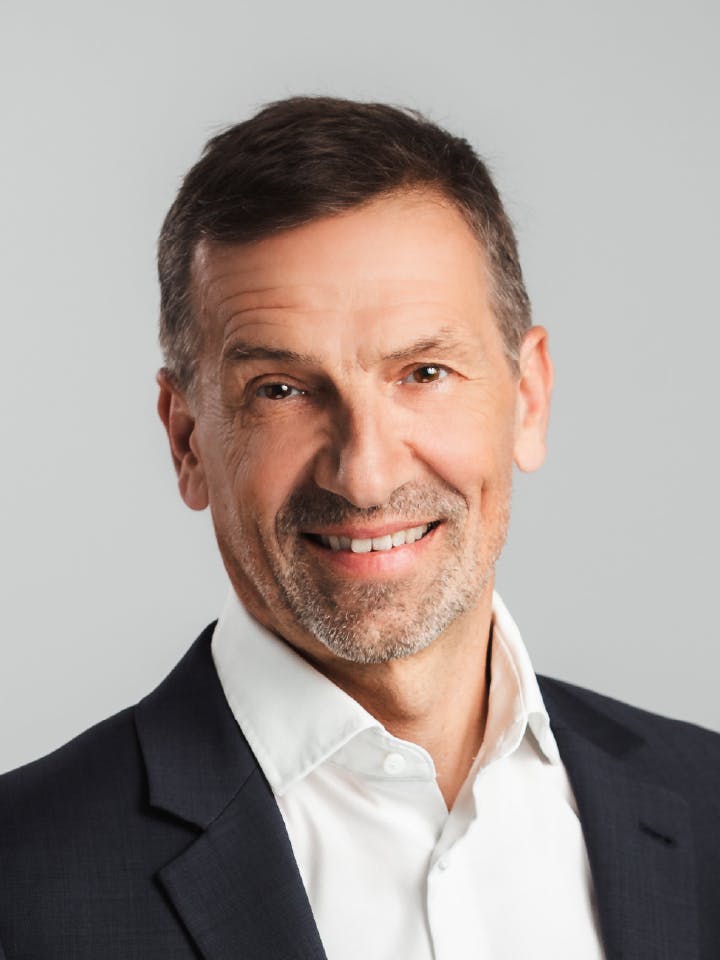

Poledna
Dr. Stefan Poledna is the CEO & CTO at TTTech Auto. He is responsible for the technology roadmap, all scientific topics and quality management in both companies. Dr. Stefan Poledna has over 30 years of international industry experience in innovative embedded systems development. He has authored several patents with a focus on safety, communication, and automated driving. He received his Ph.D. degree in computer science with distinction from Vienna University of Technology, where he also lectures on Dependable Computer Systems.


Kopetz
Georg Kopetz is co-founder, CEO and member of the executive board at TTTech. As the company’s Chief Executive Officer, he is responsible for the overall strategy of the corporation, marketing, sales, finance and human resources. He also serves as the President of TTTech’s joint-venture company TTControl in Brixen/Bressanone, Italy. After attending school in Germany, Austria and the US, he studied law at the University of Vienna in Austria and at the Université Paris II (Panthéon-Assas) in France.
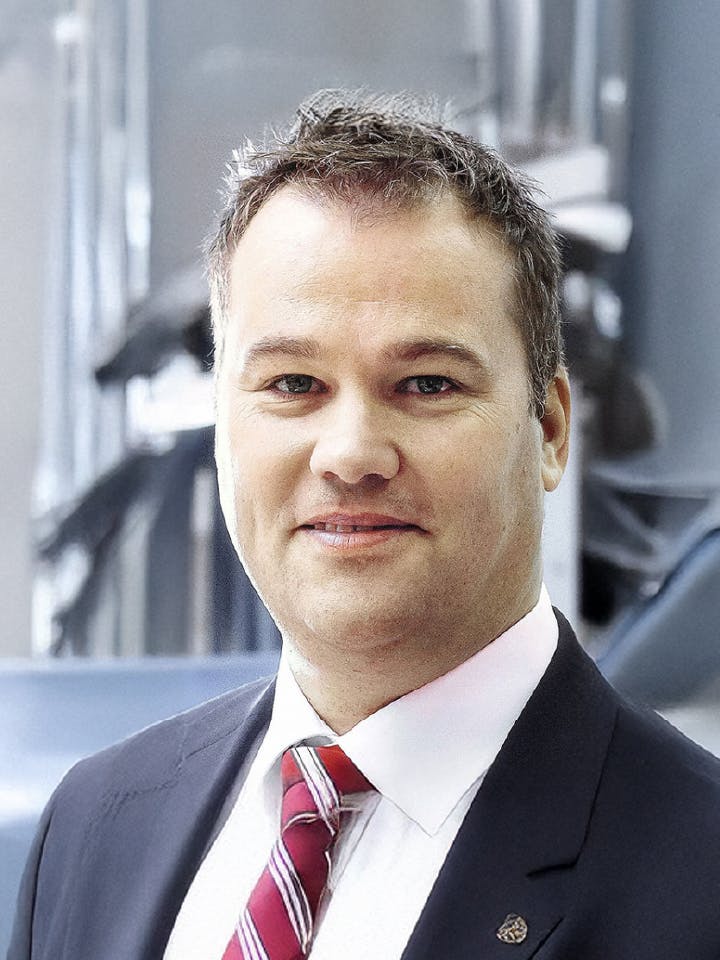

Kötz
Jens Kötz is Head of Development Architecture, Energy, Security and Diagnostic Functions at AUDI AG. With over 24 years of experience in Automotive Industry, he is an expert in cross electronic technologies. With that knowledge he has driven many innovations in the field electronic networking, energy supply, functional safety, diagnostics and cyber security. In addition, Jens Kötz has taken the responsibility for further departments such as connectivity, electrification and high voltage-batteries.


Augustin
Bernhard held various positions in ADAS/AD development with AUDI and Cariad. He started his career in the semiconductor industry at Infineon in ASIC design and product marketing. After several years in startups, he joined AUDI in the development of body electronics. His current focus is on ADAS architecture and compute platforms.
Safe architectures: how far can safety by design go?
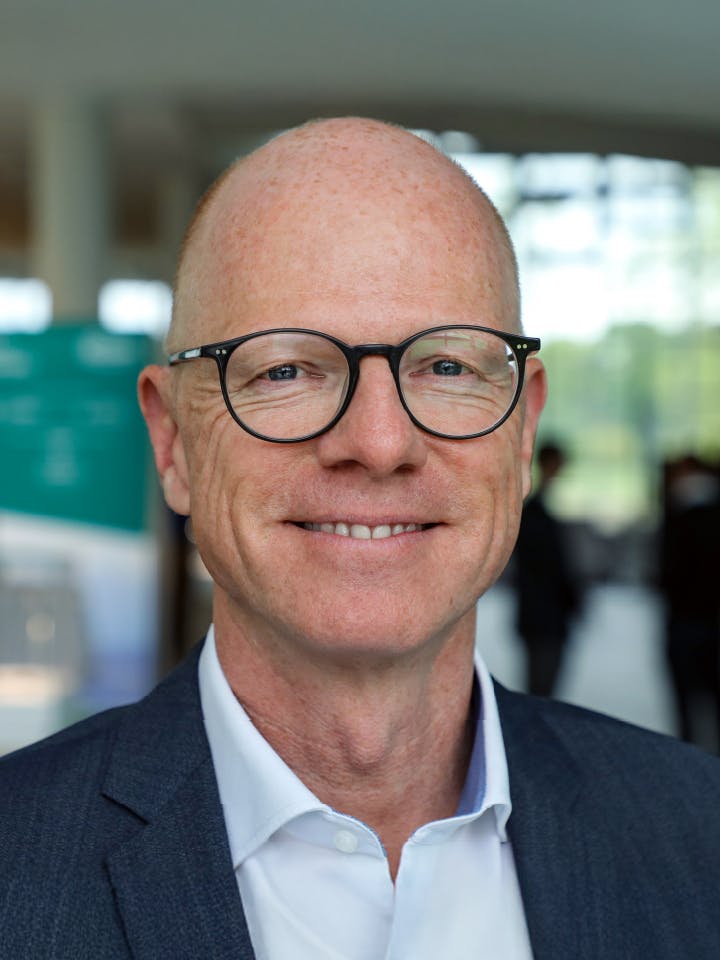

Schaefer
Peter Schaefer is leading the Automotive Segment of Infineon as Executive Vice President and CSO Automotive. Previously, he was Head of the Automotive Microcontroller Business Unit from 2008 to 2021, establishing the foundation to grow Infineon into a broadliner and market leader in automotive MCUs with product families like AURIX and TRAVEO T2G. He has been with Infineon and Infineon associated or predecessor companies since 1995.


Damm
Richard Damm is President of the Federal Motor Transport Authority (Kraftfahrt-Bundesamt, KBA) in Germany. He is also chairman of the UNECE Working Party on Automated, Autonomous and Connected Vehicles in Geneva where the globally effective regulations on automation of vehicles are generated. Before being appointed President of KBA, Mr. Damm served at the Federal Ministry of Transport and Digital Infrastructure in Bonn and Berlin. Richard is an internationally recognized expert in the field of the worldwide harmonization of vehicle regulations.
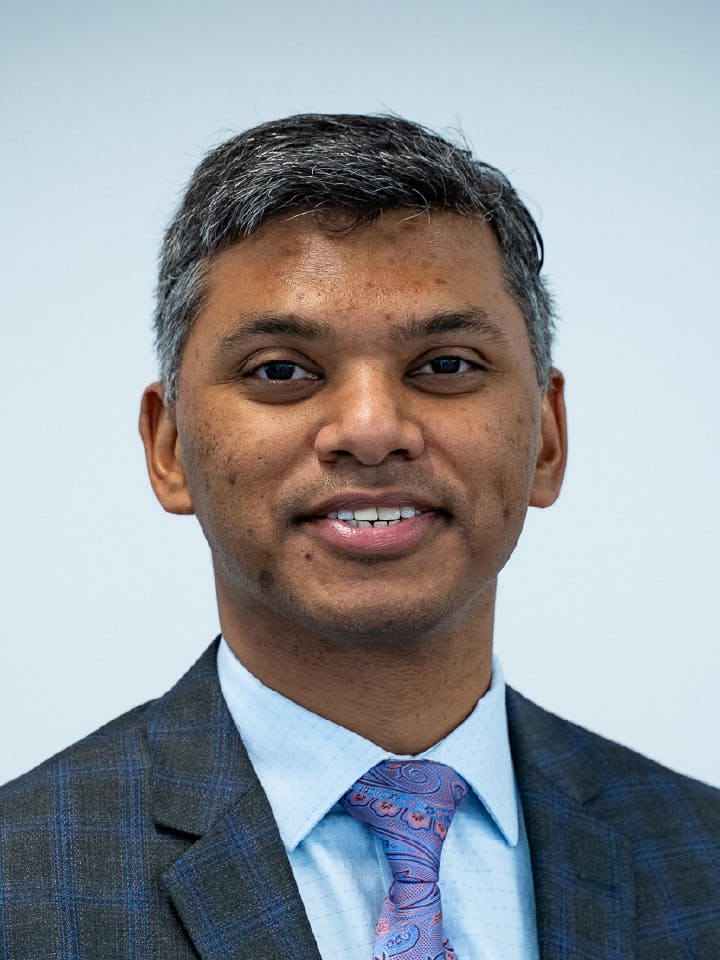

Khastgir
Professor Siddartha Khastgir is Head of Safe Autonomy at WMG, University of Warwick, leading £17M+ in AI safety research across land, air, and marine transport. He serves on the UK Dept for Transport’s Science Advisory Council and directs PAVE UK, promoting public trust in automated vehicles. Siddartha contributes to global standards via ISO, SAE, and UNECE, and has received awards including UKRI Future Leaders Fellowship and Forbes 30 Under 30. He holds a PhD from Warwick and a B.Tech from IIT Kharagpur.


Kugi
Andreas Kugi has been the Scientific Director of the AIT Austrian Institute of Technology since July 2023 and Full Professor for Complex Dynamical Systems at TU Wien since 2007. He received his degree in Electrical Engineering from TU Graz and earned a Ph.D. from Johannes Kepler University Linz in 1995, followed by his habilitation in control engineering in 2000. His research focuses on complex dynamical systems, mechatronics, robotics, and process automation. Andi authored over 400 publications, holds 169 patents, supervised over 60 Ph.D. dissertations.
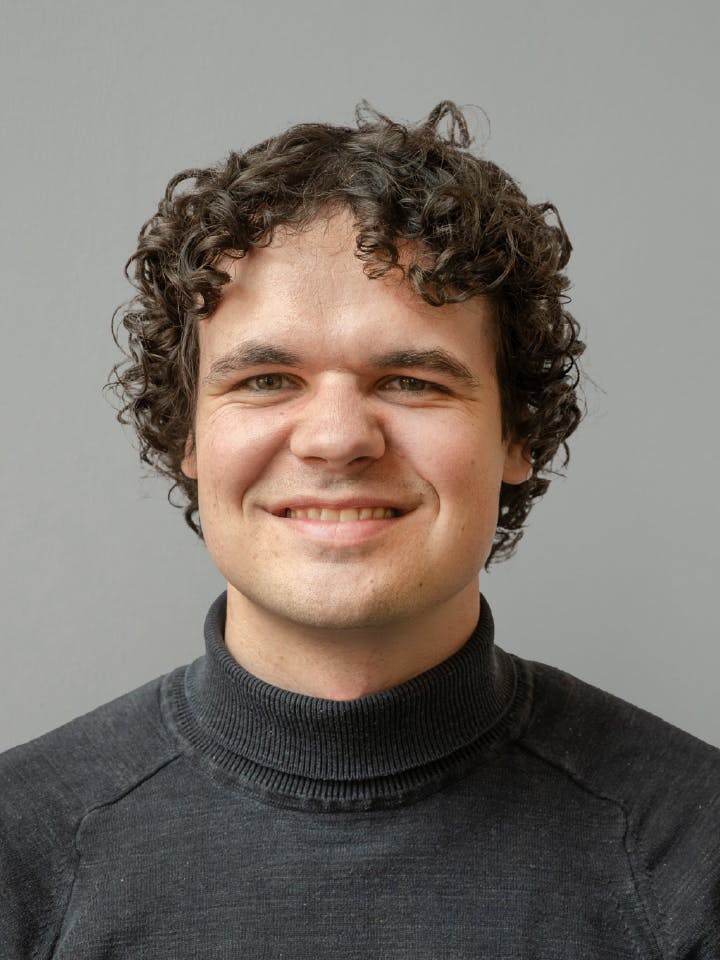

Steinbuch
Yuri Steinbuch is Chief Business Officer at Avular, overseeing sales, HR, investor relations, and partnerships. With a Systems and Control background from TU/e, he blends technical insight with a passion for people and impact. An early entrepreneur, he founded his first company at 15 and led STORM Eindhoven’s global electric motorcycle journey. Twice honored by the Royal Dutch Academy of Sciences, Yuri lives by: “Always create as much positive impact as you can.”
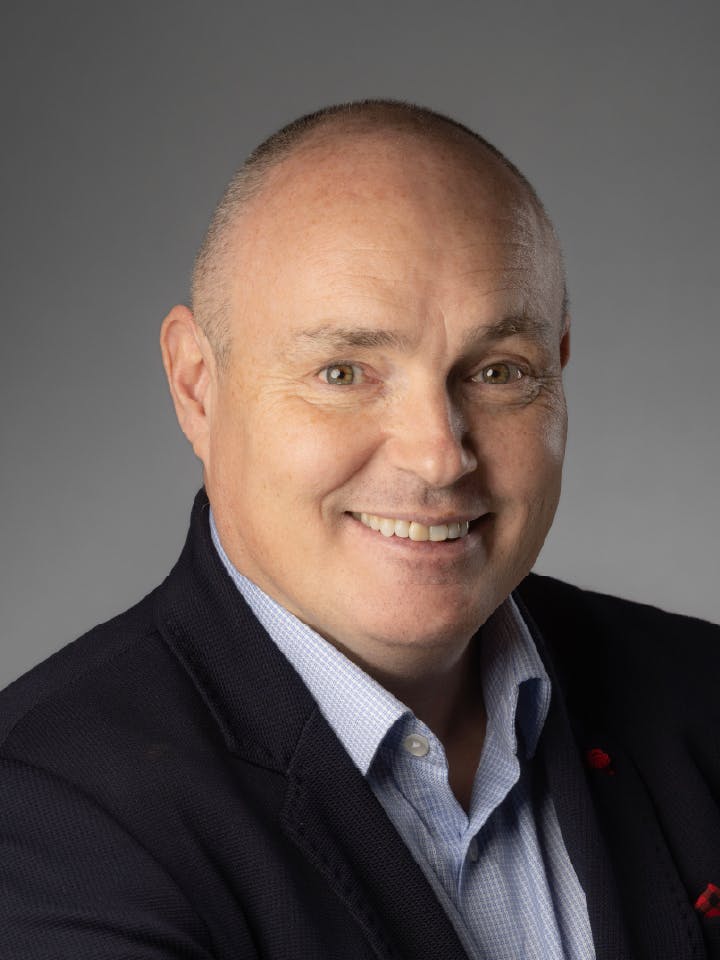

Dalton
William Dalton leads the development and expansion of VicOne’s business across the European and North American automotive markets. Prior to joining VicOne, he spent over 20 years at Trend Micro, where he held a variety of corporate, functional, and regional leadership roles. Earlier in his career, William spent seven years developing manufacturing control systems in the electronics industry. He has also served on the boards of technology-focused non-profit organizations and has actively supported cybersecurity accelerators and STEM-related programs.
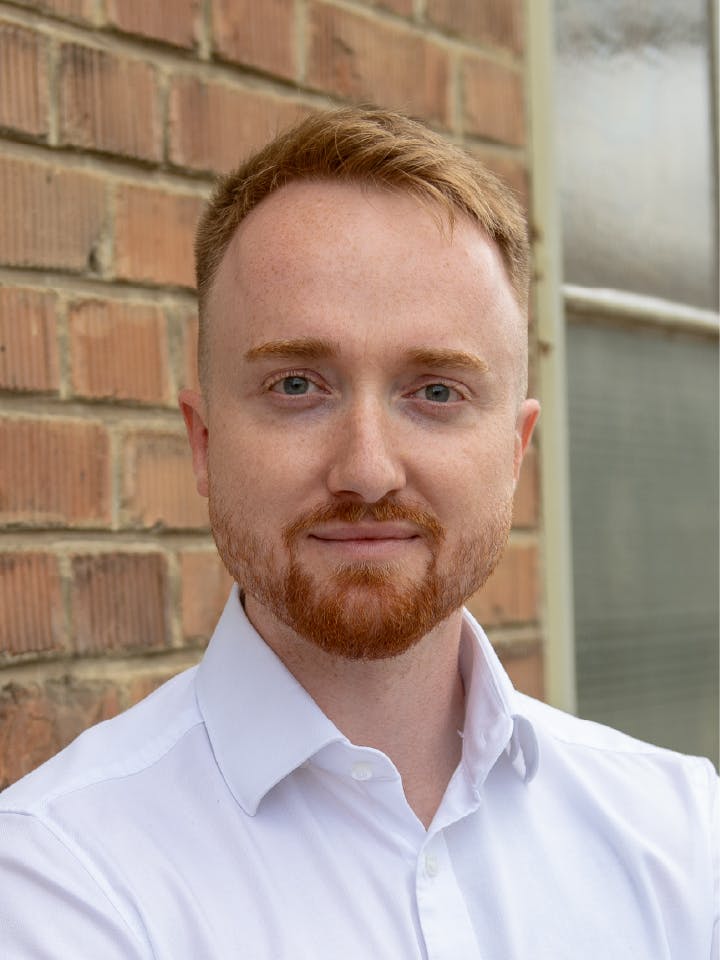

Juza
Jakub Juza is the CEO of Roboauto, a company specializing in software development for autonomous systems and related technologies. With a background in robotics and artificial intelligence, Jakub has led Roboauto’s work in teleoperation since 2018, driving real-world deployments in collaboration with both industrial and research partners.


Boone
Jennifer has spent her entire adult life on stages, in front of the camera or at the microphone, in Trinidad &Tobago, the UAE and Europe working as a performing artist, presenter and voice over artist. Additionally she studied media management and media journalism and is currently doing her master's in business psychology. Continuously learning and receiving new perspectives is her great passion. In her free time she loves to travel to new places, spend time with friends and family or try out any kind of sport.
Preliminary Agenda 2025
Join us at The Autonomous Main Event 2025 on September 17-18 as we explore what it takes to deliver autonomy that works in the real-world under the theme Making a Real-World Impact: Safe and Secure Software-Defined Autonomy. Stay tuned for updates on workshops and keynote presentations and check out the panel topics planned for September 18 below.
Click on the panel topics to see the detailed description.
End-to-End Architectures for Autonomous Systems: From Sensors to Actuators As autonomous systems continue to advance, the need for seamless, end-to-end architectures becomes critical. From advanced perception technologies to deterministic high-performance computing and fault-tolerant actuation, every component must be seamlessly integrated to meet the demands of real-world deployment. This panel will explore the latest advancements in sensor fusion, real-time data processing, and fail-operational architectures that are shaping the future of autonomous mobility. Experts will discuss key challenges in functional safety, software-defined architectures, and the role of high-assurance middleware in enabling scalable, software-driven autonomy across industries. Leading Questions: 1. How can modular and scalable architectures support the increasing complexity of autonomous systems while ensuring long-term adaptability? 2. What role does deterministic high-performance computing play in enabling safe and predictable autonomous decision-making? 3. What are the key considerations in designing fail-operational systems to ensure continued operation in the event of component failures? 4. How are modern software frameworks and middleware evolving to enable flexible, safe, and updatable autonomous vehicle architectures?
Missy Cummings, Professor, George Mason University Autonomous Vehicles: Are we there yet? With increasing self-driving car pilot deployments in the US and abroad, there is a tendency to claim that such operations are solved and ready for commercialization. However, self-driving trucking has experienced several setbacks, and presently, no self-driving cars are commercially operating on interstates. In addition, recent deployments have highlighted issues in remote supervision of self-driving cars, which is a back-stop risk management tool for all companies. This talk will highlight recent wins in self-driving but also areas of high risk and propose a technology roadmap to mitigate these risks.
From Software-Defined to AI-Defined Autonomy: Enhancing Safety and Security The transition to software-defined and AI-defined autonomy represents a transformative phase in autonomous mobility. Software-defined architectures have provided flexibility and modularity and allow the hosting of multiple functions on highly integrated platforms. End-to-end AI-driven decision-making is now taking the spotlight, enhancing perception, prediction, and adaptability in real-time environments. However, this shift brings new challenges in safety, explainability, and cybersecurity as these systems tend to become complex black boxes. Leading Questions: 1. How does the integration of AI redefine the traditional software-defined architecture in autonomous systems? 2. How can we harness AI to create safer, more resilient autonomous systems? What frameworks are necessary to validate and certify AI-powered decision-making? 3. What is the rational distribution of AI functionality between the cloud and the edge? 4. Are the currently existing frameworks up to the multi-dimensional challenges of technical, legal, and ethical requirements?
The Disruptors’ Track is designed for high-growth startups in L3/L4 autonomous driving safety, autonomous trucking, robotics, and regulatory solutions. In this session, selected startups will present their innovations focused on creating real-world impact through safe and secure software-defined autonomy on the Main Stage. Following the pitch, each startup will host a private breakout session for deeper, one-on-one discussions with interested stakeholders, fostering meaningful connections, partnerships, and growth.
Jens Hinrichsen, EVP and General Manager Advanced Analog, NXP Semiconductors Built for Trust: Engineering Safe Intelligence at the Edge
The Regulatory Roadmap to Autonomous Vehicles: Balancing Safety and Innovation Regulation plays a pivotal role in the journey towards autonomous mobility. Safety remains paramount, but overly stringent regulations could hinder innovation, while a lack of clear guidelines may delay adoption. This panel assembles global policymakers, industry leaders, and legal experts to examine the current state of autonomous vehicle regulation, address the challenges of harmonizing global frameworks, and explore how to strike the right balance between fostering groundbreaking innovation and ensuring public safety. Leading Questions: 1. What are the biggest regulatory gaps preventing large-scale deployment of AVs, and how can they be addressed? 2. What role should industry stakeholders play in shaping AV regulations, and how can public-private collaboration be strengthened? 3. What lessons can be learned from current AV testing programs, and how should regulations evolve to support real-world deployment? 4. What regulatory adjustments are needed to enable large-scale deployment of autonomous trucking across long-haul routes in the EU / the US?
Mathias Pillin, CTO, Bosch Mobility AD by a Tier 1 – high tech, truly automotive, truly global Autonomous driving will disrupt the future of mobility, where genuine innovation requires both automotive excellence and scalable homologation. Bosch combines its extensive automotive expertise with a track record in cutting-edge AI technology to create systems that have the potential to go on a global scale. This talk discusses the capabilities of cutting-edge AI along with the challenges of running a probabilistic system in a deterministic automotive environment.
The Disruptors’ Track is designed for high-growth startups in L3/L4 autonomous driving safety, autonomous trucking, robotics, and regulatory solutions. In this session, selected startups will present their innovations focused on creating real-world impact through safe and secure software-defined autonomy on the Main Stage. Following the pitch, each startup will host a private breakout session for deeper, one-on-one discussions with interested stakeholders, fostering meaningful connections, partnerships, and growth.
Update from The Autonomous Innovation Stream The Autonomous Working Group and Expert Circles will unveil their annual findings.
The Rise and Evolution of Robotics: A Transformative Impact on Industry and Society The rise of robotics is revolutionizing industries, from autonomous vehicles and smart factories to precision agriculture, healthcare, smart homes, and smart cities. As robots become more intelligent, connected, and autonomous, they rely on cutting-edge technologies such as edge AI, sensor fusion, and safe, secure real-time processing. How can we continue driving these advancements by enabling safer, more efficient, and scalable robotic solutions? This panel will explore how autonomous robotics is reshaping key industries, addressing challenges related to safety, security, and regulation, and what’s needed to unlock the full potential of intelligent robotic systems. Leading Questions: 1. How are robots transforming industries such as manufacturing, logistics, and transportation? What are the main technological and regulatory challenges? 2. What are the critical advancements in edge computing, AI, and sensor integration driving the next generation of robotics? 3. As autonomous systems operate in real-world environments, how can we ensure functional safety, resilience, and cybersecurity? 4. What are the latest advancements in collaborative robotics, and how can they enhance efficiency while maintaining safety?
-
Doors Open for Check-inNetworking & Coffee08:00 - 09:00
-
Welcome AddressWelcome Address by Ricky Hudi, Chairman of The Autonomous09:00 - 09:20
-
Fireside ChatTo be announced soon09:20 - 09:40
-
Panel I - ArchitectureEnd-to-End Architectures for Autonomous Systems: From Sensors to Actuators09:40 - 10:20
-
Morning Break10:20 - 11:10
-
Keynote IMissy Cummings, Professor, George Mason University11:10 - 11:30
-
Keynote IMissy Cummings, Professor, George Mason University11:10 - 11:30
-
Panel II - AI-Defined AutonomyFrom Software-Defined to AI-Defined Autonomy: Enhancing Safety and Security11:30 - 12:10
-
Keynote IITo be announced soon12:10 - 12:25
-
Keynote IITo be announced soon12:10 - 12:25
-
Disruptors' Track: Session ITo be announced soon12:25 - 12:40
-
Networking & Lunch12:40 - 14:10
-
Keynote IIIJens Hinrichsen, EVP and General Manager Advanced Analog, NXP Semiconductors14:10 - 14:30
-
Panel III - RegulationThe Regulatory Roadmap to Autonomous Vehicles: Balancing Safety and Innovation14:30 - 15:10
-
Keynote IVMathias Pillin, CTO, Bosch Mobility15:10 - 15:25
-
Disruptors' Track: Session IITo be announced soon15:25 - 15:40
-
Afternoon Break15:40 - 16:30
-
The AutonomousUpdate from The Autonomous Innovation Stream16:30 - 17:20
-
Panel IV - RoboticsThe Rise and Evolution of Robotics: A Transformative Impact on Industry and Society17:20 - 18:00
-
Closing Remarks18:00 - 18:10
-
Mingling & Networking18:10 - 19:00
Event Location A hybrid event experience
The Autonomous Main Event will be held at the Hofburg Imperial Palace and virtually. For those attending in person, a hotel list is available here.














